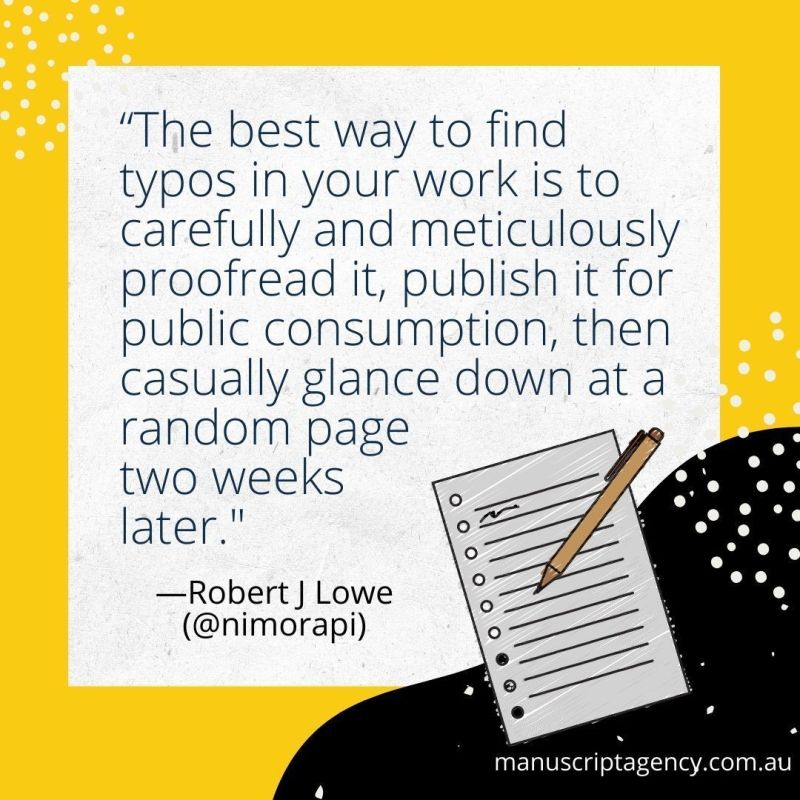In spite of *gestures at everything*, I am still a professional editor, and I still want to help you with your writing. So let's talk about that for a bit.
It's not uncommon for writers to be unsure of what kind of editing they need. They want to make their novel the best it can be, but they also don't want to break the bank doing it. Once you've determined whether you need an editor, how do you know what kind of editing to get?
This isn't helped by the fact that different editors use different terms and definitions. I'm going to use my terms here, which should give you a foundation for talking to any editor even if they use these terms slightly differently.
I'm going to talk about three very broad categories of editing:
- Developmental edit
- Line edit (a.k.a. copy edit)
- Proofread
This is what you want when you've finished an early draft and want to know whether the story works. A developmental edit (or dev edit) looks at the big picture—structure, pacing, plot holes, themes, characterization, world-building. Does each scene and chapter serve a purpose and move the story forward? Does every major character have an arc?
From a practical standpoint, a developmental edit will consist primarily of comments in your document and a thorough editorial letter.
This edit is for writers who are ready to dig deep and do major revisions—adding or removing characters, combining subplots, cutting or rewriting whole chapters. You might even decide the best way forward is to rewrite the whole thing! (That's not as bad as it sounds, mind you. I'll talk about that in a future post.)
A dev edit might be less helpful if you're satisfied with the story's plot and structure and you just want it to be written better or if you're on a tight deadline and don't have time for major revisions.
This kind of edit is generally better earlier in the writing process, when the novel still feels soft and malleable. (Technically, novels are always soft and malleable, but it's hard to feel that way after the 50th revision!)
Line Editing (or Copy Editing)
This is for when you know the story and structure are sound, but the writing just isn't where you want it to be. A line edit (sometimes called a copy edit, though some editors have different definitions for each of these terms, so always ask!) looks at the writing and the craft—description, dialogue, sentence length, character voice, emotional impact. Does each sentence and scene convey the feelings you want them to? Are the style and detail choices consistent throughout? Is the word "just" used too many times, and does the main character sigh too much?
From a practical standpoint, a line edit will consist primarily of (lots of!) tracked changes with additional comments throughout the document to explain those changes or query the author's intent.
Line edits are useful when you're getting ready to publish and want to make the novel sound as good as it possibly can.
Proofreading
This is the last step before publication. The editor will be looking for objective errors—typos, grammar issues, punctuation. The goal is to create a document that is completely error free (even though, as any writer knows, that's virtually impossible).
- What stage is the novel at? Earlier stages benefit more from a dev edit, while a line edit is usually better if the novel's close to finished.
- What aspects of your manuscript are you confident about? If you know the plot and chapter structure is good, for example, then you probably don't need a dev edit.
- What level are your writing skills at? For example, experienced writers who have published a solid story or two might (MIGHT!) have less to gain from a dev edit. Newer writers might benefit from a deep edit as a way to acquire a lot of knowledge all at once. (Note that everybody needs a good line edit.)
- What can you afford? A single round of editing can be very expensive, with no real guarantee of a return, so only you can decide what's most important to you. Maybe you can lean on beta readers for free developmental feedback. Or maybe you have a good sense of craft but less of whether this story will work, so you risk skipping the line edit. Or maybe you want to get a deep edit to learn as much as you can from it to apply to all future revisions.




Sigh... This is just the kind of interference that no good writer needs. It's just useless for any one who just knows just what their doing and writes good. Sigh...
ReplyDeleteBut really, yeah, writing is rewriting, and a good editor is like a film editor - they know how to tighten things up and get the most drama out of every scene.
Also, I was listening to an interview with Brian Daley, and he said there's a well-known sci-fi writer who brags about never needing to be edited, but they have the same agent, and so Daley knows for sure that this guy is getting serious edits.